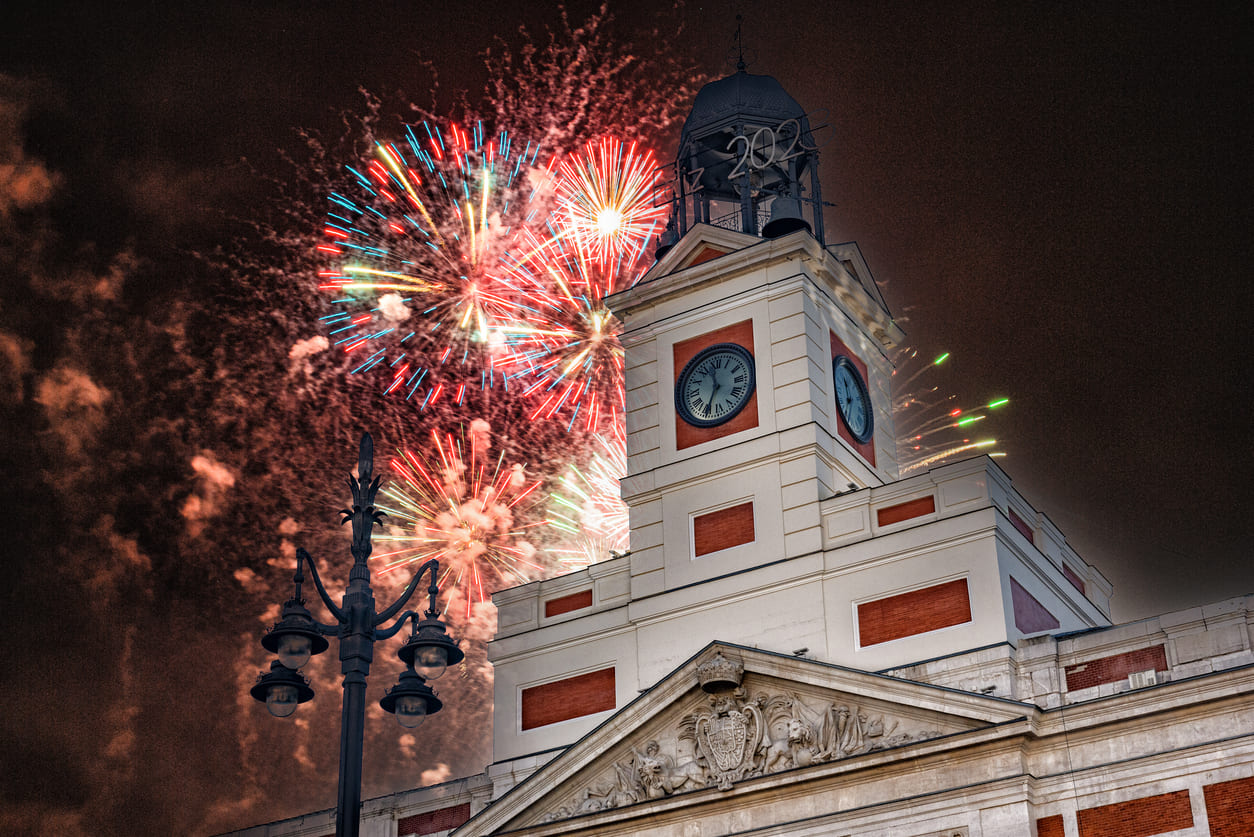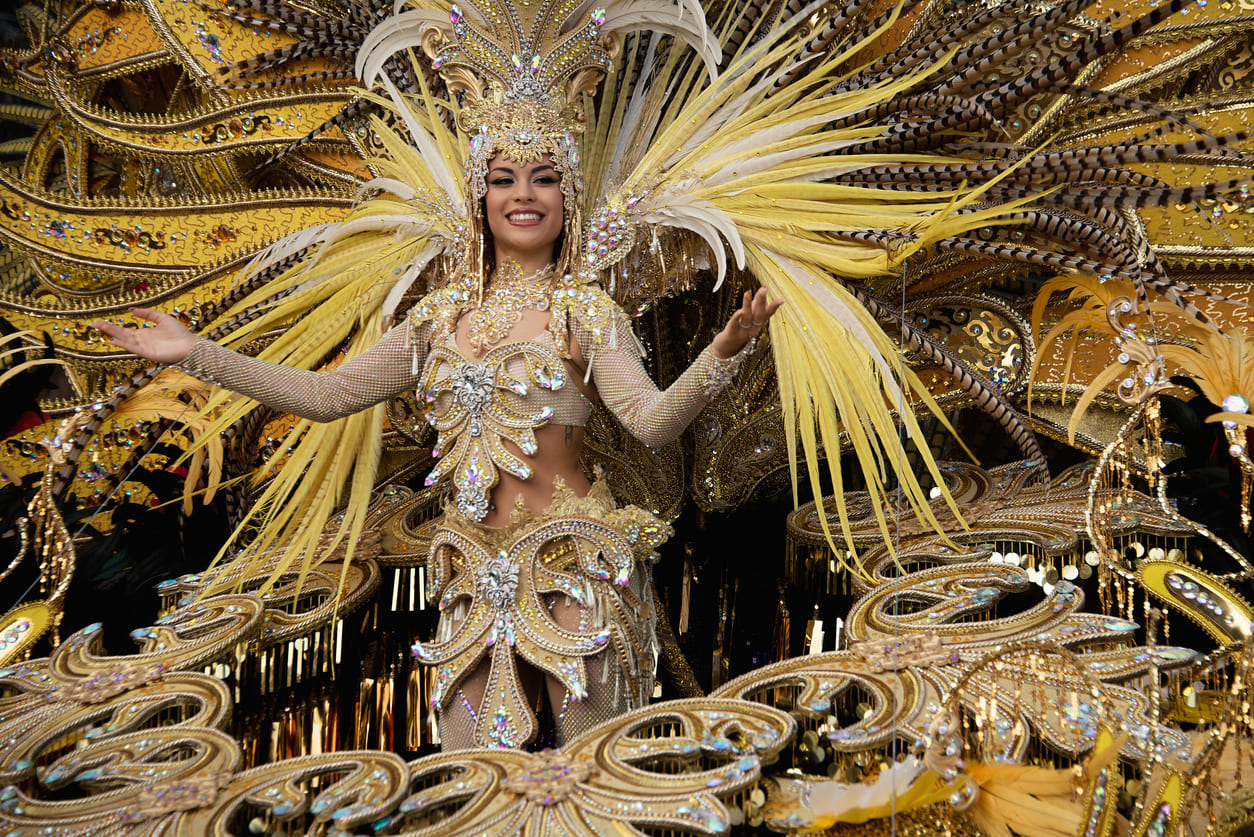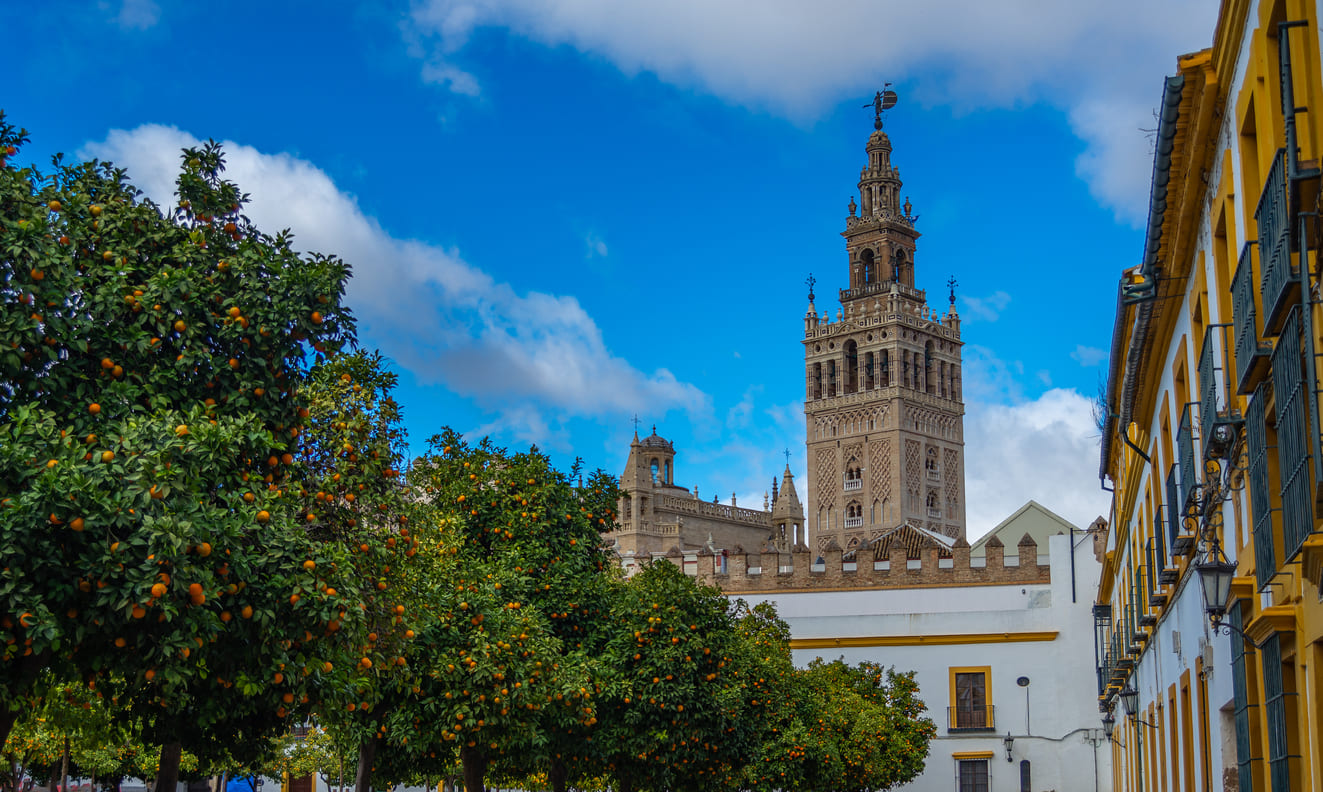Dates of New Year's Day in Spain
| 2026 | Jan 1 |
| 2025 | Jan 1 |
| 2024 | Jan 1 |
Related Holiday in Spain
Spain Holiday Calendars
New Year's Day in Spain is a public holiday marked by rest and family gatherings after the long night of celebrations. Many people start the year with a late breakfast or chocolate con churros, while others attend mass or enjoy a quiet day with loved ones.
New Year's Day: A Public Holiday?
New Year's Day is a public holiday in Spain. It is a day of rest, with most businesses, offices, and schools closed. Many people spend the day recovering from Nochevieja celebrations, enjoying family meals, or attending mass.

New Year's Day
New Year's Day, or Año Nuevo, has been celebrated in Spain for centuries, influenced by both religious and cultural traditions. The date of January 1st as the official start of the new year was established with the adoption of the Gregorian calendar in 1582, replacing the Julian calendar. Historically, it was a time for reflection, attending church, and spending time with family. In earlier centuries, the transition to the new year was marked with religious ceremonies and gatherings rather than loud celebrations. Over time, customs evolved, and New Year's Eve (Nochevieja) became the main festive occasion, while New Year's Day remained a quieter holiday.
During Spain's Catholic history, January 1st was also associated with the Feast of the Circumcision of Jesus, a religious observance in the Christian calendar. While modern celebrations are less religious, many Spaniards still attend mass on this day. The holiday has now become a time for relaxation, spending time with family, and recovering from the previous night's celebrations, making it one of the most peaceful public holidays in the country.
New Year's Day Celebration in Spain
New Year's Day in Spain is a quiet and peaceful holiday, offering a contrast to the lively celebrations of New Year's Eve. After staying up late to welcome the new year, most people sleep in and spend the day resting. It is common to enjoy a late breakfast or brunch, with chocolate con churros being a popular treat. Families gather for a relaxed meal at home, often featuring traditional dishes like roasted meats or seafood. Many people also take the opportunity to go for a walk, visit relatives, or watch the New Year's Concert from Vienna on television.
Attending mass is an important part of the day for those who follow religious traditions. Churches hold special services where people reflect on the past year and pray for a good year ahead. Some also participate in small traditions for good luck, such as making resolutions or wearing red underwear, a practice that starts on New Year's Eve. Some regions have local events or parades, but overall, the day remains calm and family-centered.
New Year's Day holds great importance as it symbolizes a fresh start. It is a time to leave behind the past and welcome the future with hope and positivity. The quiet nature of the holiday allows people to focus on their loved ones, reinforcing the value of family and togetherness. It also serves as a brief pause before the upcoming Three Kings' Day (Día de Reyes) on January 6th, which is another major celebration in Spain.
New Year's Day Observances
| Year | Date | Weekday | Name | Holiday Type |
|---|---|---|---|---|
| 2024 | Jan 1 | Mon | New Year's Day | National Holiday |
| 2025 | Jan 1 | Wed | New Year's Day | National Holiday |
| 2026 | Jan 1 | Thu | New Year's Day | National Holiday |
| 2027 | Jan 1 | Fri | New Year's Day | National Holiday |
| 2028 | Jan 1 | Sat | New Year's Day | National Holiday |



